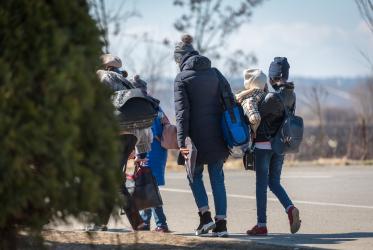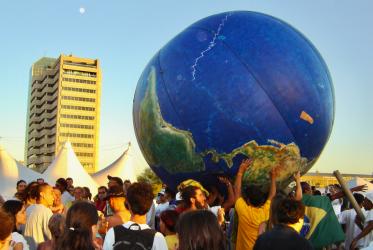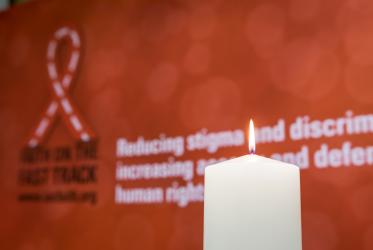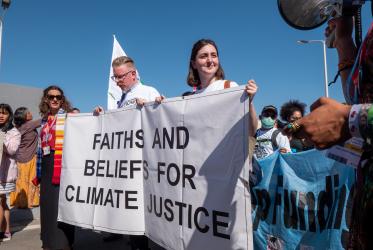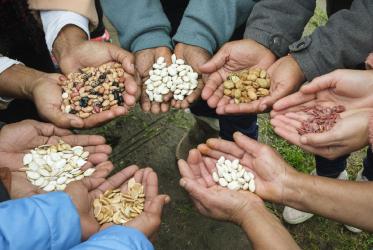Displaying 1 - 20 of 194
WCC, WHO commemorate 50 years of collaboration
04 April 2024
Compendium of Promising Practices of African Faith Community Interventions against Paediatric and Adolescent HIV
Executive Summary
23 March 2024
Consultation on strategic sngagement of the faith sector with migrants, refugees and other displaced populations for increased access to health and HIV services
12 - 14 March 2024
Ecumenical Center, Geneva, Switzerland
¿Qué pueden hacer las iglesias para prevenir la esclavitud moderna?
26 February 2024
What can churches do to prevent modern slavery?
22 February 2024
Seminar: The Feast of Creation and the Mystery of Creation: Ecumenism, Theology, Liturgy, and Signs of the Times in Dialogue
15 - 16 March 2024
Cittadella Laudato Si’ (known as “Cittadella”) – Via degli Ancaiani 3, Assisi
Ellyanne Chlystun-Githae Wanjiku to COP28: “listen more to children”
13 December 2023
Recommended Practices to Combat HIV-Related Stigma
A Guidebook for Local Faith Communities
05 October 2023





